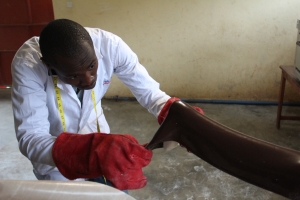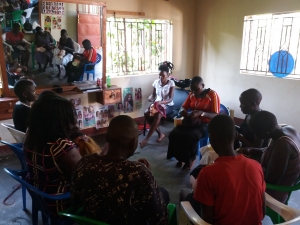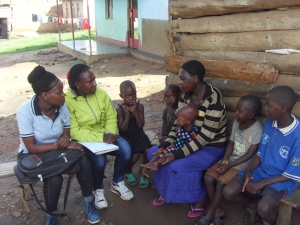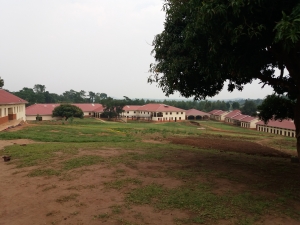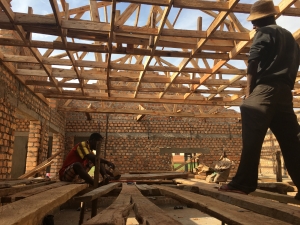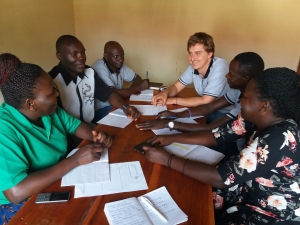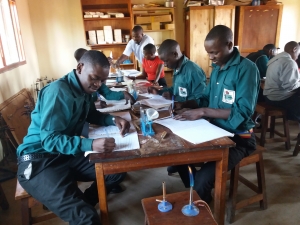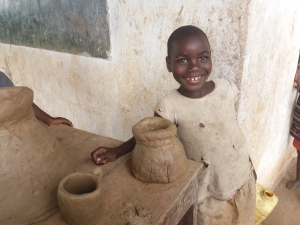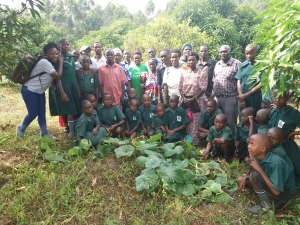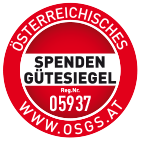21.04.2020
A CHANCE FOR CHILDREN NGO, Uganda: ANNUAL REPORT – 2019

LEADERSHIP AND MANAGEMENT OF ACFC
The organisation has a general assembly and an executive which sits at the beginning of the year to plan how best the organisation’s activities can be enhanced. ACFC is managed by staff at headquarters, headed by the coordinator who meets with the chairman to set weekly programmes.
To ensure effective service delivery in different sectors, various meetings are held each month as follows:
Department heads meet in the middle of the month.
Schools administrators meet at the end of the month.
Field staff and social workers meet in the last week of the month.
ORGANISATION EMPLOYEES:
Teachers/heads and bursars: 174
Administration at headquarters: 4
Workshops (Carpentry, Welding, Tailoring, Mechanics, Mill, Hairdressing, Shoemaking): 27
Farm workers and porters: 12
Matrons: 26
Cooks: 13
Health workers: 14
Social workers: 7
Field officers: 5
Total: 282
All employees are registered for NSSF and pay as you earn is also paid. Staff are provided with accommodation when needed and food during working hours.
DEVELOPMENT PARTNERS
Our funding organisation is KINDERN EINE CHANCE (KEC) based in Austria, represented by Stefan Pleger and Gabi Ziller plus other board members who not only send money but also come visit Uganda up to four times a year to monitor value for donor funding. Accounts are sent regularly, at least every other week, to the board in Austria to ensure transparency and to update them on developments. We receive volunteers from Europe regularly to support ACFC staff in developing their skills.
ACFC AIM AND MAIN OBJECTIVES:
Our major aim is to support orphans and other vulnerable children and give them access to quality education and a bright future. Objectives include:
To turn children into future job makers rather than job seekers.
To encourage effective formal education in schools.
To encourage skills development programmes for children/young adults.
To empower caretakers with knowledge and skills so they can provide children’s basic needs without our support.
To create a conducive learning environment for children by constructing schools in remote areas.
To care for all vulnerable children, including those who are HIV positive and have special needs as well as children from very poor families.
ACHIEVEMENTS IN 2019
Here are just a few highlights of 2019:
Completion of construction of School for All at Busunju.
Purchase of 20 acres of land at Nkozi for further development.
Construction of the nursery teachers training college, nursery school and Vocational College at Nakaziba.
Registering 46 students and trainees for DIT exams.
Installation of drip irrigation at Nakaziba farm as one of the steps to modern agriculture.
Starting construction of a nursery and primary school at Kamusenene in Mubende district.
Formation of support groups for parents of children with special needs (support in agriculture and ‘sensitization’ meetings)
Management workshop held where all departments were represented and fully participated in decision making for future plans of the organisation.
3.1. CHILDREN’S SPONSORSHIP & SUPPORT:
Number of sponsored children on 31.12.2019:: 1250
All these children are provided with school fees, scholastic material, school uniforms and porridge and/or lunch at school. Those in boarding houses are given additional assistance. ACFC tries to involve caretakers as much as possible and urges them to take over responsibility where possible.
3.1.1. VOCATION SKILLS DEVELOPMENT PROGRAMME OF ACFC (Trainees)
Total: 29, out of them 18 finished their training in 2019
We educate young people to become job makers than job seekers by offering such skills to school leavers who have failed S.4 or P.7, or even those who dropped out earlier. We bring them to our workshops and give them a chance to choose according to their interest and receive training for two years. In the second year they have the opportunity to sit for DIT (Directorate of Industrial Training) exams at St. Theresa vocational school in Zigoti.
3.1.2. In-service sponsorship programme for nursery, primary and secondary education:
Total 34
This programme helps future nursery, primary or secondary teachers to train on the job while studying during holidays. These people help in ACFC schools during their in-service time and acquire a lot of practice. ACFC pays school fees and/or tops up requirements where necessary.
3.1.3. HIV CHILDREN POSITIVE LIVING PROGRAM
Total 133 children in MItyana and Mubende
and 81 mothers in both districts
This programme operates in Mityana and Mubende districts and caters for HIV positive living children and some positive living mothers as indicated above. Every month we provide transport to the hospital for their medicine and check up by doctors. We provide nutritious food (sugar, maize flour, beans, rice and different types of soya) and bathing soap. Our social workers carry out regular visits to their homes to check on hygiene, bedding, hospital attendance and health status. In case of severe sickness, if they are admitted to hospital, we cover treatment costs. Three times a year during school holidays,we offer special counselling meetings with nurses and counselors.
3.2. SOCIAL WORK:
Our social workers register children who seek support, carry out family visits to their families and select cases which should receive support. Their findings are presented to Uganda and Austria management teams and together decisions about who should be supported are taken.
Educating caretakers about sanitation and hygiene, food security, economic boosters. Supported families are regularly followed up.
Offering counselling and guidance to all children in the organization’s schools in Mityana and Mubende Districts.
Providing economic booster services, for instance starting up saving groups, providing seedlings (eg passion fruits) to selected families, training women in income -generating projects like arts & crafts, training families in farming basics.
Teaching adolescents how to make re-usable sanitary pads to reduce absenteeism during their menstrual period and educating girls about personal hygiene.
Training girls to ride a bicycle or motor bike in order to improve their mobility.
Providing bedding (mosquito nets, blankets, bed sheets) to the most needy cases
3.3. ORGANISATION SCHOOLS
ACFC runs several of its own schools. The first were Bongole Primary and Butimba Primary schools which opened in 2010. The last to open was Kalangaalo Primary school, officially inaugurated in the presence of its donor Kurt Treffner and several senior officials, among them the Minister for Tourism in February 2019.
A) Primary Schools
Bongole PS and nursery: 422 pupils
Kakindu PS: 259
Kakindu nursery: 140
Lukingiridde nursery: 88
Butimba PS and nursery: 325
Nateete PS and nursery: 393
Lubajja PS and nursery: 395
Kalangalo PS and nursery: 329
Total number of pupils in ACFC nursery and Primary schools: 2351
In the list above nursery and primary schools are only separated where they already have separate administrations. Bongole Primary School also has a registered center for UNEB exams. The primary schools in Bongole, Kakindu, Nateete and Lubajja have facilities for boarders.
B) Secondary Schools
Bongole S.S.S: 201 students
Nateete S.S.S: 181
Total number of students in both secondary schools: 382
Bongole Secondary has a registered centre for UCE (O level) exams. Both secondary schools have facilities for boarders. Both schools offer vocational subjects and the best students can do the DIT exams at the end of Senior 3.
3.4. SPECIAL NEEDS PROGRAMME:
This programme caters for children who are physically handicapped or deaf and also includes children with severe learning difficulties and speech problems. ACFC runs two schools for handicapped children in Zigoti: Christoph Bettermann School 1 (catering for children who are too young to study and very severe cases) and Christoph Bettermann School 2 (focusing on those who can benefit from some education and also vocational training) and School for All in Mubende. Additionally there is a nursery and primary school for the deaf at Ttanda.
Schools
CB 1 Zigoti:47
CB 2 Zigoti: 87
School for All Mubende: 68
School for the deaf Ttanda: 109
Total number of children in the above schools: 311
Some of the activities/services conducted in our special needs programme include:
Introduction to formal education.
Outreach programme to families with children with special needs in the community, field visits, home therapy, counselling.
Physiotherapy and occupational therapy in our schools for handicapped children.
Speech therapy for children who need it.
Providing plaster casts for children who need them – mostly those with club foot, knock knees and related cases.
Support for children who need surgery through Namutamba and CORSU.
Regular home visits including home therapy.
Regular therapy camps where caretakers come with their children for two weeks to the schools to get better treatment and therapy.
Every month the department organizes ‘sensitization’ clinics in different sub counties where new clients are assessed and given an opportunity to access programmes.
A nutrition programme where malnourished children are given support every month.
An orthopedic workshop making plastic aids for legs and arms.
3.5. PORRIDGE AND MONITORING PROGRAMME IN GOVERNMENT AIDED SCHOOLS
A - BENEFITING SCHOOLS IN PORRIDGE PROGRAMME:
Mityana district 49 schools
Mubende district 14 schools
B - BENEFITING SCHOOLS IN MONITORY PROGRAMME:
Mityana district 61 schools
Mubende district 20 schools
Under the porridge programme, in 2019 we supplied 65,640 kgs of maize flour in Mityana and 23,400 kgs in Mubende, totalling 89,040 kg of maize flour.. This programme aims to reduce the absenteeism rate of learners and save children from hunger while at school. Our field officers check on teachers’ presence and preparation and write reports which are sent to district officials after each term. The district reacts to these reports by warning non-performers (or even cutting salaries) and boosting best-performers.
‘Beginning of term exams’ is another programme we run in Mityana and Mubende Districts: all 156 schools in Mityana District do these exams on the second day of term, plus 20 schools in Mubende district. This programme aims to increase the number of pupils and teachers in the schools on the first day of each term.
3.6. WATER PROGRAMME
A CHANCE FOR CHILDREN drilled 12 boreholes in 2019. Since the programme started 63 boreholes have been drilled in different sub counties which help communities to get clean water and reduce absenteeism of learners due to carrying water long distances. All boreholes are drilled on community land and each community has to form a water committee which is responsible for care of the boreholes, reporting to our team when there are problems. The water team of ACFC also managed to recommission 52 boreholes in Mityana, Mubende and Kasanda districts.
3.7. CONSTRUCTION
ACFC Busunju integrative school
ACFC Kalangalo classroom block
ACFC Nateete boys’ dorm
ACFC Bongole ps boys’ dorm
ACFC Kakindu classroom block
ACFC Fencing of Zigoti farm
ACFC Fencing Nakaziba
ACFC Fencing Kakindu ps
Roofing Namigavu govt. school
Nakaseeta govt. school classroom block
ACFC Nakaziba vocational college
ACFC Kamusene
ACFC Kamusenene pit latrine
ACFC Ttanda
ACFC Butimba
ACFC Nateete pit latrine
3.8. LAND ACQUISITION
6 plots at Nateete
Kibanja Kakindu
2 plots at Butimba
Plots at Kalangalo
Land at Nkozi 20 acres
A plot at Zigoti near headquarters
4. CHALLENGES.
Properly maintaining organisation assets
Increasing local production
Intensifying monitoring in Government aided schools to result in better performance in schools where we operate
Ongoing care of organisation assets - land, furniture and farm tools
Indiscipline cases of pupils at school and at home
High rate of dropouts mainly after s.4 and p.7 seeking support
Increasing number of requests for support from the community due to poverty and changing seasons
5. FUTURE STEPS:
Ensure that children’s caretakers do not surrender all responsibility to the organisation through counselling and saving groups
Maintain effective service delivery in all established organisation programmes/ projects
Increase local production and stop purchasing local food in the organisation
Ensure good protection and use of organisation land
Ensure quality services (i.e. education) to beneficiaries
Complete vocational college
Set up an inclusive school at Busunju
Set up a nursery school in Kamusenene
Set up the nursery school and training college at Nakaziba
Provide more support to children in need
6. CONCLUSION:
In conclusion, building on its achievements of the last eleven years, A Chance for Children has managed to maintain all its programmes and put more on the ground thanks to support and direct transfer of funds to grass roots from our funding organisation KINDERN EINE CHANCE (KEC). We extend our gratitude to our Austrian friends, to the management and leaders of A Chance for Children, to local government officials especially from Mityana and Mubende and of course to staff and pupils for their joint efforts.
Nabulimu Betty Lukango Ceasar
ACFC Coordinator ACFC Chairman


